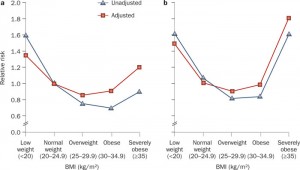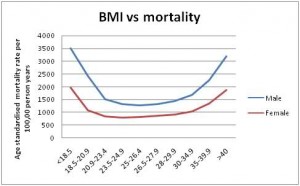Here’s my once a month on the first Sunday Food Matters column for the San Francisco Chronicle, out today:
Nutrition and public policy expert Marion Nestle answers readers’ questions in this column written exclusively for The Chronicle. E-mail your questions to food@sfchronicle.com, with “Marion Nestle” in the subject line.
Q: I’m confused about calories. If I cut calories to lose weight, does it matter what foods I eat? Or are all calories the same?
A: As the co-author of “Why Calories Count: From Science to Politics,” I hear this question all the time.
The short answer: Calories matter for weight. The choice of foods that provide the calories matters a lot for health and may make it easier for you to diet successfully.
To lose weight, reducing calorie intake below expenditure works every time.
To prove this point, a professor at Kansas State University lost 27 pounds in 10 weeks on the Twinkies diet – one Twinkies every three hours with occasional snacks of chips, sugary cereals and cookies. Even so, he cut his usual calorie intake by 800 a day. Anyone would lose weight doing that.
Only four dietary components provide calories: fat (9 per gram), carbohydrate and protein (4 per gram each) – and alcohol (7 per gram).
Does the particular mix of these components make any difference to weight loss? Yes, say proponents of diets low in carbohydrate, especially rapidly absorbable sugars and refined starches.
Low-carbohydrate diets are necessarily high in fat, and somewhat higher in protein. Do people lose weight on them because of the effects of carbohydrates on insulin levels or because low-carbohydrate diets help reduce calories?
This question does not have an easy answer, but not for lack of trying. Weight-loss studies are hard to do. Estimating calorie intake is notoriously inaccurate, and measuring calories is difficult and expensive.
The first measurement study I know of took place in 1964. Investigators from the Oakland Institute for Medical Research studied weight loss in five obese patients in a hospital metabolic ward. They calculated the number of calories needed to induce rapid weight loss in each patient, and fed each of them a liquid formula diet containing that number every day. Every few weeks, they changed the formula to vary the proportions of protein (ranging from 14 percent to 36 percent of calories), fat (12 percent to 83 percent), and carbohydrate (3 percent to 64 percent).
Regardless of the proportions, all patients lost weight at a constant rate. The investigators titled their study “Calories Do Count.”
This study was conducted under rigidly controlled conditions of hospitalization and involved actual measurements – not estimations – of calorie intake and body weight.
But what about weight-loss studies involving people who are not incarcerated? Since the early 2000s, numerous clinical trials have shown low-carbohydrate diets to produce greater weight loss than low-fat diets. Some also have observed improvements in blood pressure, blood glucose levels and blood lipids.
But it is so inaccurate to estimate calorie intake in such studies that most didn’t bother to try. This means they can’t say whether the weight loss was due to composition of the diet or to calorie reduction.
It’s possible that low-carbohydrate, high-fat diets make people less hungry, but the evidence for this is mixed. Most studies of extreme diets of any type report high dropout rates or failure to stick to the diet for more than six months or so. And even though initial weight loss is rapid on low-carbohydrate diets because of water loss, these diets are low in fiber and some vitamins.
One problem with losing weight is that it takes fewer calories to maintain smaller bodies. Dieting also reduces energy expenditure.
One recent study of that problem involved taking detailed measurements for several years, and illustrates the difficulties of obtaining definitive answers to questions about diet composition and energy balance.
The researchers wanted to know whether diet composition affected energy expenditure in very obese people who had just dieted off up to 15 percent of their weight. They found that a low-carbohydrate diet did not slow down energy expenditure nearly as much as a low-fat diet, meaning that low-carbohydrate diets might make it easier for people to maintain weight loss.
On this basis, the investigators said, “The results of our study challenge the notion that a calorie is a calorie from a metabolic perspective.”
Perhaps, but study subjects were fed prepared calorie-controlled diets for only four weeks, and lost and maintained weight under highly controlled conditions. Does diet composition matter for weight maintenance in the real world? Longer-term studies by other investigators show that diet composition makes little difference in the ability to maintain weight loss.
Most reviews of the subject conclude that any diet will lead to weight loss if it cuts calories sufficiently.
Obviously, some diets are better for health than others.
Face it. The greatest challenge in dieting is to figure out how to eat less – and to eat healthfully on a regular basis – in the midst of today’s “eat more” food environment. And that’s a much more important research problem than whether low-carbohydrate or low-fat diets work better for weight loss.
Marion Nestle is an author and a professor in the nutrition, food studies and public health department at New York University. She blogs at foodpolitics.com. E-mail: food@sfchronicle.com



